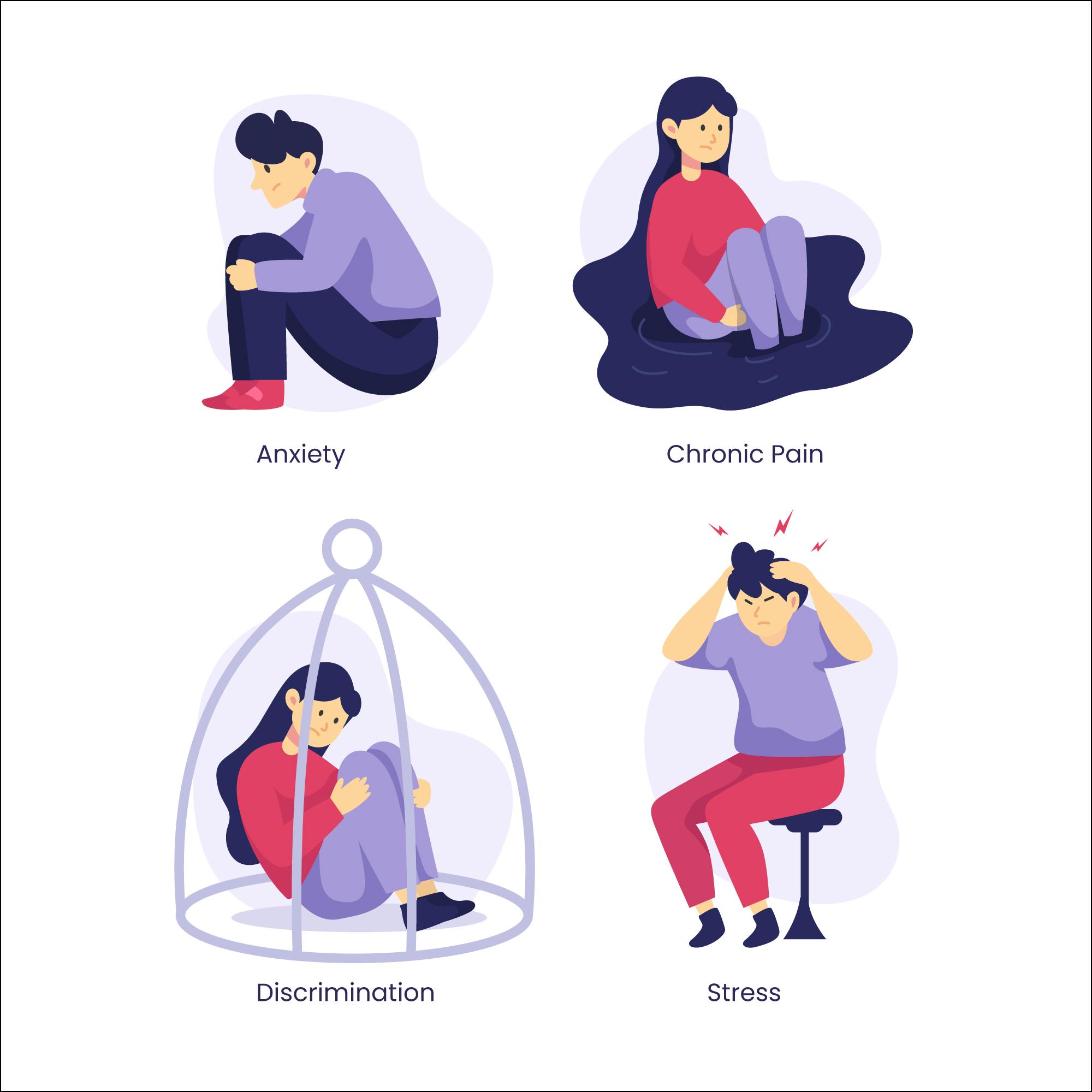Empowering Adults: A Comprehensive Handbook for Managing Psychological Disorders
Introduction:
In today’s fast-paced world, adults often encounter various challenges that can impact their mental health. Psychological disorders, also known as mental illnesses, are conditions that affect a person’s thoughts, emotions, and behaviors. Ranging from anxiety and depression to schizophrenia and bipolar disorder, these disorders can significantly interfere with daily life if left untreated. In this comprehensive guide, we’ll delve into common psychological disorders in adults, exploring their symptoms, causes, and available treatments to provide a better understanding and support system for those affected.

1. Understanding Anxiety Disorders:
Anxiety disorders are prevalent among adults and encompass a range of conditions such as generalized anxiety disorder (GAD), panic disorder, social anxiety disorder, and specific phobias. Symptoms often include excessive worry, fear, restlessness, and difficulty concentrating. Genetic, environmental, and psychological factors can contribute to anxiety disorders, and treatment typically involves therapy, medication, or a combination of both to help individuals manage their symptoms effectively.
2. Exploring Depression:
Depression is a mood disorder characterized by persistent feelings of sadness, hopelessness, and loss of interest or pleasure in activities. It can impact how individuals think, feel, and behave, often leading to physical symptoms like fatigue, changes in appetite or sleep patterns, and aches or pains. Genetic, biological, environmental, and psychological factors may contribute to depression, and treatment options include therapy, medication, lifestyle changes, and support from loved ones to facilitate recovery and improve overall well-being.
3. Insights into Bipolar Disorder:
Bipolar disorder involves extreme mood swings, alternating between manic highs and depressive lows. During manic episodes, individuals may experience elevated mood, increased energy, and risky behavior, while depressive episodes are characterized by sadness, fatigue, and loss of interest. The exact cause of bipolar disorder is not fully understood, but genetic, biological, and environmental factors may play a role. Treatment typically includes mood-stabilizing medications, therapy, and lifestyle adjustments to help individuals manage their symptoms and stabilize their mood.
4. Unveiling Schizophrenia:
Schizophrenia is a chronic and severe mental disorder characterized by hallucinations, delusions, disorganized thinking, and impaired social functioning. Its exact cause remains unknown, but a combination of genetic, brain chemistry, and environmental factors is believed to contribute to its development. Treatment usually involves antipsychotic medications, therapy, and support services to help individuals manage their symptoms, improve their quality of life, and enhance their social functioning.
5. Understanding Obsessive-Compulsive Disorder (OCD):
Obsessive-compulsive disorder involves recurrent, unwanted thoughts (obsessions) and repetitive behaviors or mental acts (compulsions) performed to alleviate anxiety or distress. Common obsessions include fears of contamination, doubts, and intrusive thoughts, while compulsions may involve excessive cleaning, checking, or counting. OCD can significantly interfere with daily functioning and cause distress. Treatment often includes cognitive-behavioral therapy (CBT), exposure and response prevention (ERP), and medication to help individuals manage their symptoms effectively.
6. Insights into Post-Traumatic Stress Disorder (PTSD):
Post-traumatic stress disorder can develop after experiencing or witnessing a traumatic event such as combat, natural disasters, or physical or sexual assault. Symptoms may include flashbacks, nightmares, severe anxiety, and avoidance of reminders of the traumatic event. PTSD can affect individuals of all ages and backgrounds and can have a profound impact on their overall well-being. Treatment may involve therapy, medication, and support from loved ones to help individuals cope with their symptoms and facilitate healing.
7. Navigating Attention-Deficit/Hyperactivity Disorder (ADHD) :
Attention-deficit/hyperactivity disorder is a neurodevelopmental disorder characterized by difficulties with attention, hyperactivity, and impulsivity. Symptoms often begin in childhood and can persist into adulthood, affecting work, relationships, and daily life. Treatment may include medication, therapy, and practical strategies to help individuals manage their symptoms effectively and improve their overall functioning.
Conclusion :
Psychological disorders in adults are complex conditions that require understanding, support, and effective treatment. By recognizing the signs and symptoms of these disorders and seeking help when needed, individuals can take steps toward managing their symptoms, improving their quality of life, and achieving their goals. With proper diagnosis, treatment, and support, many people with psychological disorders can lead fulfilling lives and thrive in their communities.

